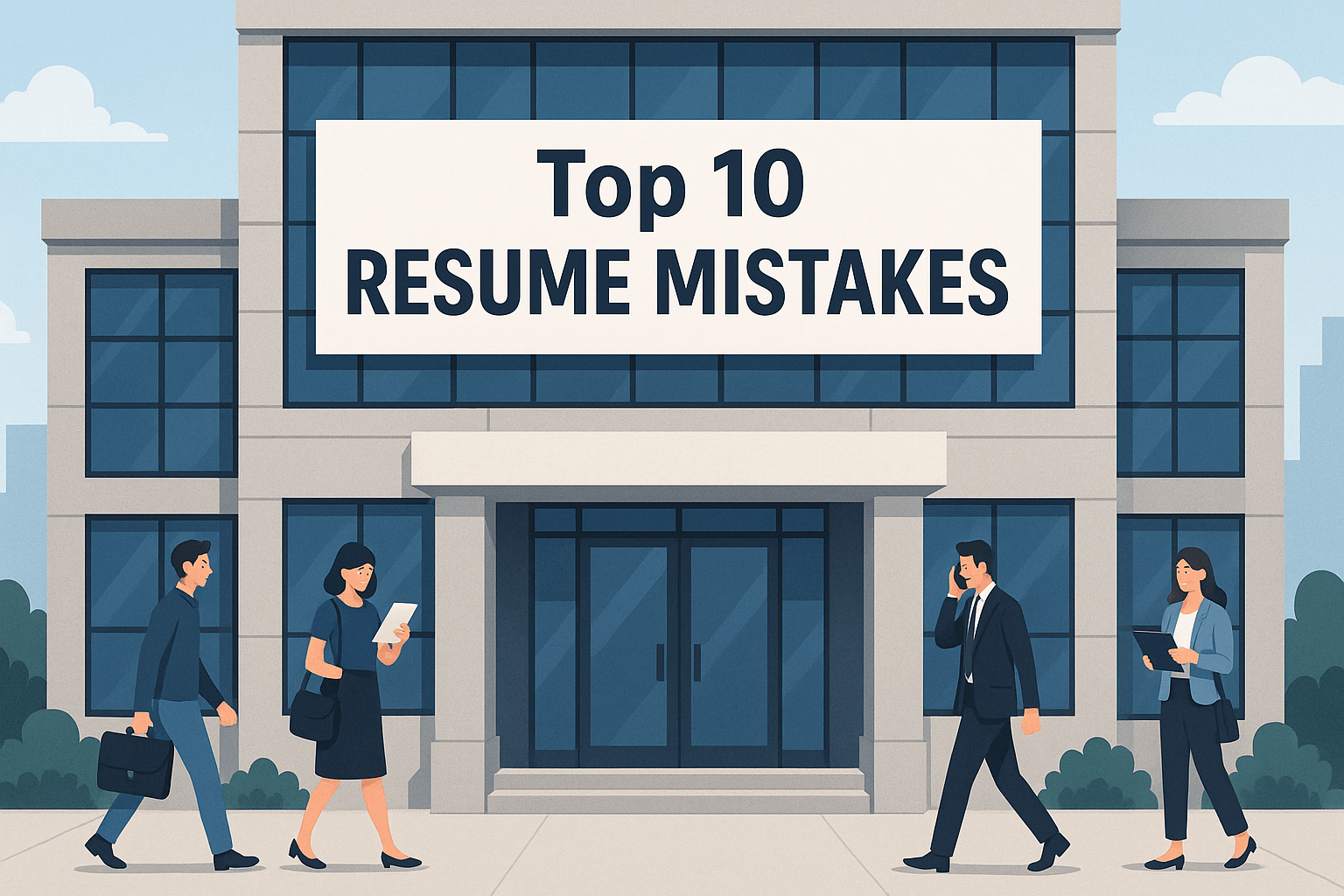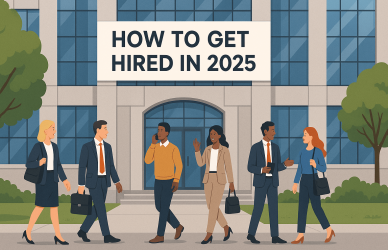Top 10 resume mistakes: When it comes to job hunting, your resume is your first impression. A strong resume can open doors, while a flawed one can close them before you even step through. Unfortunately, many candidates make common mistakes that hinder their chances of landing an interview. Whether you’re a recent graduate or a seasoned professional, avoiding these pitfalls is essential. Let’s dive into the top 10 resume mistakes and, more importantly, how to avoid them.
Top 10 Resume Mistakes to Avoid for Career Success
Table of Contents
1. Spelling and Grammatical Errors
One of the most basic, yet damaging, resume mistakes is failing to proofread. Spelling and grammatical errors suggest carelessness and a lack of attention to detail – traits that no employer wants in a candidate.
How to Avoid It:
- Use spell-check, but don’t rely on it exclusively.
- Read your resume aloud to catch awkward phrasing.
- Ask a friend or mentor to review your resume.
2. Using a Generic Resume for Every Application
Sending the same resume to every employer might save time, but it significantly lowers your chances of getting noticed. Employers want to see that you’ve tailored your resume to the role and company.
How to Avoid It:
- Customize your resume for each job by highlighting relevant skills and experience.
- Use keywords from the job description.
- Align your career summary or objective with the company’s goals.
3. Including Irrelevant Work Experience
Listing every job you’ve ever had can clutter your resume and distract from your most relevant qualifications.
How to Avoid It:
- Focus on jobs and responsibilities that align with the role you’re applying for.
- Emphasize achievements and skills that are transferable.
- Consider using a functional or hybrid resume format if you’re changing industries.
4. Poor Formatting and Layout
A cluttered, hard-to-read resume will likely end up in the discard pile. Recruiters spend only a few seconds scanning each resume, so clarity and structure are crucial.
How to Avoid It:
- Use a clean, professional layout with consistent font sizes and spacing.
- Use bullet points for responsibilities and achievements.
- Avoid excessive graphics or colors that might distract from the content.
5. Failing to Quantify Achievements
Vague descriptions like “responsible for managing a team” don’t tell employers much. Numbers and specifics help illustrate your impact.
How to Avoid It:
- Use metrics to quantify your accomplishments (e.g., “Increased sales by 25% in six months”).
- Highlight awards, recognitions, or benchmarks achieved.
- Include tangible results whenever possible.
6. Using an Unprofessional Email Address
An email like partyguy1985@example.com may have sentimental value, but it undermines your professional image.
How to Avoid It:
- Create a new email address using a professional format (e.g., firstname.lastname@gmail.com).
- Ensure your voicemail greeting is also professional if your phone number is listed.
7. Listing Duties Instead of Accomplishments
Simply stating your job duties doesn’t differentiate you from other candidates. Employers want to know what you achieved in your roles.
How to Avoid It:
- Focus on outcomes and accomplishments rather than just responsibilities.
- Use action verbs to start bullet points (e.g., “Implemented,” “Led,” “Developed”).
- Highlight how your work made a difference.
8. Leaving Unexplained Gaps in Employment
Employment gaps can raise red flags if not addressed. While gaps aren’t inherently bad, failing to explain them can cause concern.
How to Avoid It:
- Be honest and proactive about addressing gaps in a cover letter or brief resume explanation.
- Highlight any productive activities during the gap, such as freelancing, volunteering, or education.
- Format your resume to focus on skills and achievements rather than strict chronology.
Also Read : How To Get Hired 2025
9. Including Personal Information That Doesn’t Belong
Personal details like marital status, religion, age, or a headshot are not only unnecessary but can also lead to unconscious bias.
How to Avoid It:
- Stick to professional information only: contact details, skills, work experience, and education.
- Leave out your photo unless you’re applying in countries where it’s standard.
- Avoid listing hobbies unless they’re directly relevant to the role.
10. Making It Too Long or Too Short
An overly long resume can overwhelm the reader, while an overly short one might not give enough information.
How to Avoid It:
- Keep your resume to 1 page if you’re early in your career, 2 pages if you’re more experienced.
- Focus on quality over quantity.
- Trim outdated or irrelevant roles and emphasize the most recent, relevant experience.
Conclusion: Crafting a Resume That Stands Out
Your resume should be a clear, concise, and compelling representation of your professional journey. Avoiding these common mistakes ensures that your resume reflects your qualifications in the best light possible. Remember, a well-crafted resume doesn’t just tell an employer what you’ve done – it shows them what you can do for them.
Take the time to tailor each resume, proofread thoroughly, and present your accomplishments effectively. These efforts can make the difference between landing an interview and being overlooked. Treat your resume as a living document that evolves with your career, and you’ll always be ready for the next great opportunity.




